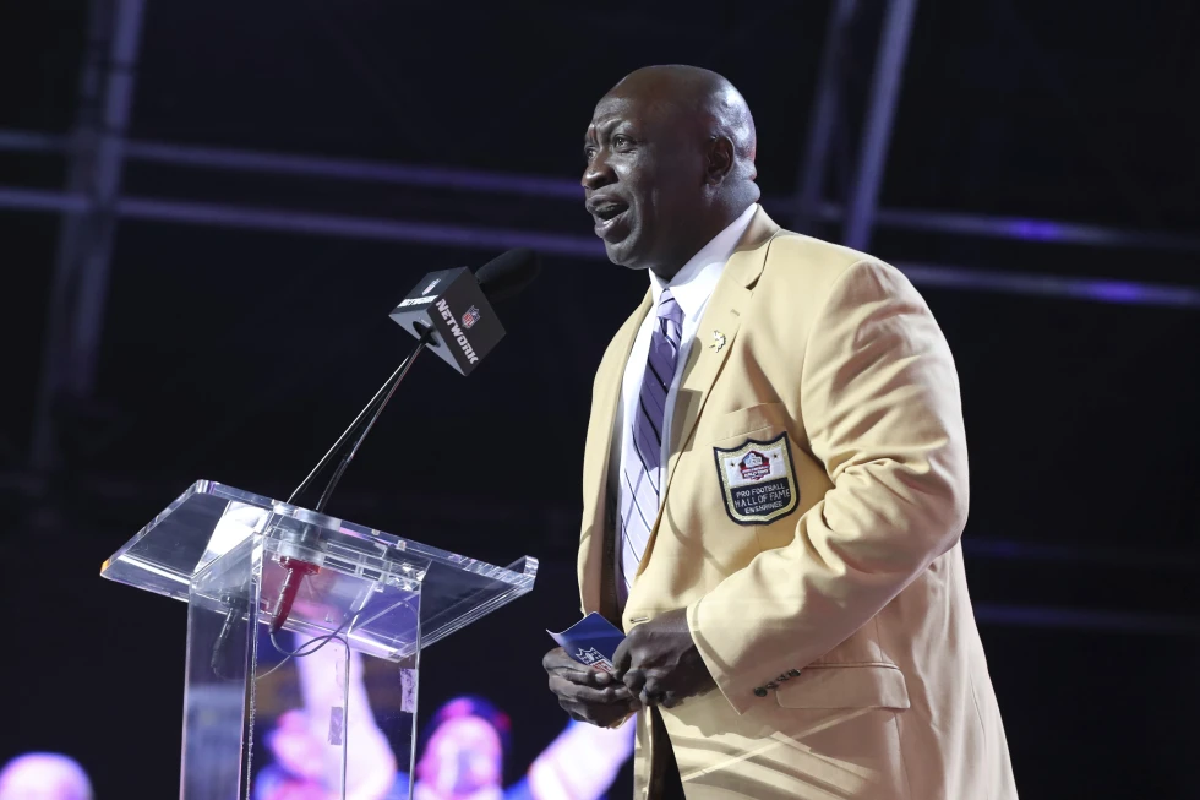NFL aims to provide valuable resources to former players through its Legends Community

By Rob Maaddi
John Randle was skeptical going into a meeting with NFL officials about an initiative for former players.
Ten years later, Randle plays a major role in the program.
The Hall of Fame defensive linemen is one of five directors for the NFL Legends Community, an organization launched in 2013 that provides valuable resources for more than 20,000 former players.
“I didn’t think this was going to succeed because there were multiple programs people wanted to do for former players,” Randle said.
But this was different. It was a vision of Troy Vincent, a five-time Pro Bowl cornerback who leads the NFL’s football operations department, and league executive Tracy Pearlman. They wanted to celebrate former players, to help them stay connected with their teams and to provide them with assistance in many areas from understanding which benefits are available to them to handling life after football. Calling them “legends” instead of former players was part of honoring their contributions to the game.
“It all goes back to Tracy and Troy,” said Randle, who played 14 seasons for Minnesota and Seattle. “Like a plant, they kept watering it. Without those two, this wouldn’t be in existence.”
Pearlman said she discussed with Vincent how the NFL’s relationship with former players was “very transactional” back then. Many players would show up for specific events but there wasn’t much more interaction.
“We talked about how there were so many benefits and offerings and legends weren’t using them because they weren’t aware,” Pearlman said. “And how could we shift the relationship that we had with legends to be more of a partnership and to be more where the league was seen as support and service, where you can go to get answers or assistance or whatever it is.”
A group of 24 former players were invited to New York to meet with Vincent, Pearlman, NFL Commissioner Roger Goodell and other staff for an open forum.
“We asked them to be honest about the way they’ve been treated since they left the game and it was eye-opening,” Pearlman said. “You had to have a little bit of a thick skin listening to some of the feedback because essentially guys were telling us: ‘I feel like the door was slammed. I feel like one day I was there and the next day I was gone. I never heard from anyone. I had to sort out all the information myself. When I do hear from people, it’s so confusing. There’s so much information from so many different entities. And what I miss the most is the locker room and the brotherhood.’
“So we sat in a room for a long time talking about the Legends Community. It needs to be about celebrating the men who played the game, their service in the game, and actually helping them sort through all the communication. So how could we possibly do that? And so that’s where we started.”
Warrick Dunn, a three-time Pro Bowl running back with Tampa Bay and Atlanta, joined Randle and other former players at the first meeting. He’s been part of the program’s growth.
“We’re assisting guys in figuring out what they’re passionate about and the things that could help them live a fruitful life,” Dunn said. “It comes with all kinds of mental health, financial responsibility, networking and those things which they are passionate about.”
Mental health resources are a big part of the programs offered by the NFL Legends Community. Health and wellness resources include health, body and mind screening, counseling service and much more.
The program also helps former players give back to the community through various grants, including social justice initiatives.
The NFL Legends Community hosts an annual welcome event for new players and their families to meet with different league departments, the trust and the player benefits team to keep them connected to the game.
There are internships and job shadowing opportunities and networks for former players working in business, coaching or media.
“I go all over the country and people always ask: ‘Hey, these guys are hurting, they’re dealing with this.’ And I go: ‘That’s why we have the Legends Community.’ It’s just helping so many,” Randle said.
There’s still a long way to go before all former players are getting the help they need. Dozens of retired players are involved in a fight against the NFL and its NFL Player Disability & Neurocognitive Benefit Plan.
___
AP NFL: https://apnews.com/hub/nfl
Read the original Associated Press article.